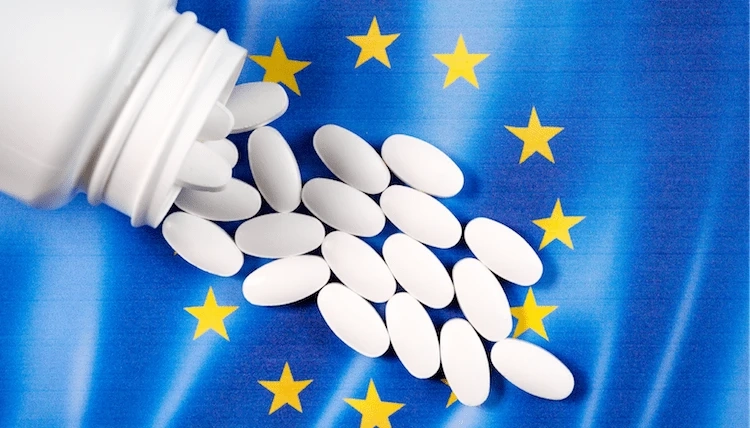The global Europe Pharmaceutical Drugs market is estimated to be valued at US$ 180.2 Bn in 2023 and is expected to exhibit a CAGR of 4.5% over the forecast period 2023-2030, as highlighted in a new report published by Coherent Market Insights.
Market Overview:
Pharmaceutical drugs are medications that are prescribed or sold over the counter for the treatment of various diseases and conditions. These drugs play a crucial role in improving healthcare outcomes and quality of life for patients. They are manufactured by pharmaceutical companies and are rigorously tested for safety and efficacy before reaching the market. The Europe Pharmaceutical Drugs market offers a wide range of therapies and medications to address different health concerns. The key advantages of pharmaceutical drugs include targeted treatment, improved patient compliance, and effective disease management. With a growing aging population and an increasing prevalence of chronic diseases, the demand for pharmaceutical drugs is expected to rise significantly in the coming years.
Market Key Trends:
One key trend in the Europe Pharmaceutical Drugs market is the increasing investments in research and development (R&activities. Pharmaceutical companies are focusing on developing innovative drugs that target specific diseases and conditions. This trend is driven by the need for breakthrough therapies, advancements in technology, and changing market dynamics. For example, companies are investing in the development of personalized medicines that are tailored to individual patient characteristics, such as genetic makeup. These personalized medicines offer improved treatment outcomes by targeting specific molecular pathways, reducing side effects, and increasing patient response rates. Additionally, companies are also investing in the development of biologics and biosimilars, which are complex biological drugs that offer targeted treatment options for various diseases.
PEST Analysis:
Political: The political landscape in Europe plays a significant role in shaping the pharmaceutical drugs market. The regulatory environment, including pricing and reimbursement policies, intellectual property rights, and market access, has a direct impact on the market dynamics. Changes in healthcare policies, such as the adoption of universal healthcare systems and the implementation of cost-containment measures, can affect market growth.
Economic: The economic conditions in Europe, including GDP growth, government healthcare expenditure, and healthcare infrastructure, influence the demand for pharmaceutical drugs. Economic stability and increased healthcare spending can drive market growth by expanding access to healthcare services and medications.
Social: Social factors, such as changing demographics, lifestyle patterns, and healthcare awareness, have an impact on the pharmaceutical drugs market. The aging population, increasing prevalence of chronic diseases, and rising healthcare literacy among patients contribute to the growing demand for pharmaceutical drugs in Europe.
Technological: Technological advancements in the pharmaceutical industry, such as precision medicine, artificial intelligence, and digital health solutions, are driving market growth. These technologies enable targeted treatment approaches, improve clinical decision-making, and enhance patient adherence to medication regimens.
Key Takeaways:
1. Market Size Related Content: The Europe Pharmaceutical Drugs Market Trend is expected to witness high growth, exhibiting a CAGR of 4.5% over the forecast period. This growth is primarily driven by increasing investments in R&D activities by pharmaceutical companies to develop innovative drugs and therapies. For example, companies are focusing on developing personalized medicines and biologics to offer targeted treatment options for various diseases.
2. Regional Analysis: Europe is expected to be the fastest-growing and dominating region in the global pharmaceutical drugs market. The presence of a large patient population, well-established healthcare infrastructure, and favorable government policies contribute to the region's market growth.
3. Key Players: Key players operating in the Europe Pharmaceutical Drugs market include Allergan plc., Novo Nordisk A/S, Boehringer Ingelheim International GmbH, Merck KGaA, GSK plc., AstraZeneca, Baxter, Novartis AG, F. Hoffmann-La Roche Limited, Shire (A subsidiary of Takeda Pharmaceutical Company Limited), and Sanofi. These companies are investing in R&D activities, strategic partnerships, and acquisitions to strengthen their market position and offer innovative pharmaceutical drugs.
In conclusion, the Europe Pharmaceutical Drugs market is poised to experience significant growth in the coming years, driven by increasing investments in R&D, advancements in technology, and changing market dynamics. The market offers a wide range of therapies and medications to address various health concerns, providing targeted treatment options and improving patient outcomes. With the aging population and rising prevalence of chronic diseases, the demand for pharmaceutical drugs is expected to surge, creating lucrative opportunities for market players.
Europe Pharmaceutical Drugs Market Is Estimated To Witness High Growth Owing To Increasing Investments in Research and Development


